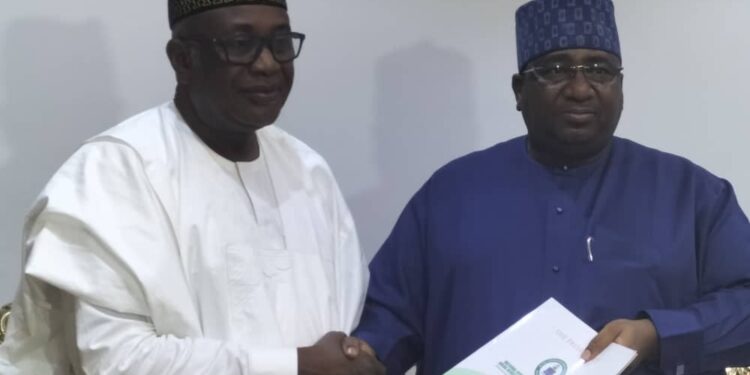Gov. Nasir Idris of Kebbi has pledged greater collaboration with the National Hydro Electric Power Producing Areas Development Commission (N-HYPPADEC) for greater impacts on host communities.
Idris made this pledge, when he received delegation of the commission who paid him a courtesy visit in Abuja.
He said that his government was always ready to provide the enabling environment for the commission to drive its developmental projects to address socioeconomic, ecological and environmental challenges facing host communities.
“We will do our best to collaborate with you and ensure that these benefits continues because this commission is our baby.
“We will do everything humanly possible to create enabling environment for you people to drive.
“Kebbi state is ever ready to collaborate with you. You have started training our youth so that at the end of the day to reduce the unemployment rate that all over the country,” Idris said.
Speaking on the commission’s achievements, the governor described N-HYPPADEC as the best gift for a developing country.
“What you are doing is the best things to offer to the people you love. It is part of some of the campaign promises I made to my people during the election, so that people will no longer depend on the government.”
He further appreciated the commission for its huge impact it was making on the lives of the host communities, through quality leadership and teamwork.
“We are not unaware of the role that this commission is playing in offering better life to our people, including the government of Kebbi under my able leadership.
“I still want to use platform to thank the management for not disappointing us.
“You are opportune to have a good management team that is why you people are able to succeed in the implementation of these policies.
“Therefore, I want you to keep it up and continue to carry everybody along because they have so many things to offer due to their experiences and expertise to support you,” he said.
Speaking earlier, the Managing Director of N-HYPPADEC, Abubakar Sadiq-Yelwa, outlined success of the commission.
He commended the state government’s support, adding that N-HYPPADEC was able to make huge impacts due to the support it’s enjoyed from the past and present administration.
Sadiq-Yelwa also called for state collation on the commission’s programme targeted at reducing unemployment in Kebbi and all HYPPADEC states.
He sought the collaborating of the state Ministry of Health on a plan health outreach in the state holding soon.(NAN)











